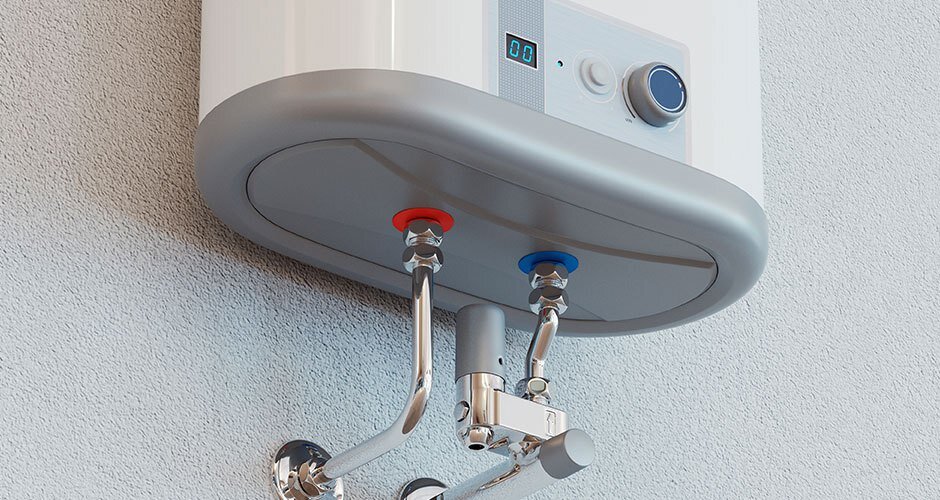The warmth of a hot shower or bath after a long day can feel like the ultimate comfort, but have you ever found yourself waiting impatiently for your hot water to be ready? Understanding how long does a hot water system take to heat up is essential for managing your household’s water usage effectively and avoiding those cold surprises.
The heating time for a hot water system depends on several factors, including the type of system, its capacity, and how much water needs to be reheated. Let’s explore the different systems, their heating times, and tips to ensure your hot water is always ready when you need it.
Factors That Affect How Long a Hot Water System Takes to Heat Up
Several elements influence how long your hot water system takes to heat up. Understanding these factors can help you choose the right system and optimise its performance.
1. Type of Hot Water System
The type of system you have plays a significant role in heating time:
- Electric Storage Systems: Use electricity to heat water stored in a tank.
- Gas Storage Systems: Heat water using a gas burner in a tank.
- Continuous Flow Systems: Heat water on demand, with no storage tank.
- Solar Hot Water Systems: Rely on solar panels, often with an electric or gas booster.
- Heat Pump Systems: Extract heat from the air to warm water.
2. Tank Capacity
Larger tanks take longer to heat up, requiring more energy to bring all the water to the desired temperature.
3. Initial Water Temperature
Cold weather can significantly lower the incoming water temperature, increasing the time required for heating.
4. Heating Element or Burner Efficiency
The condition and power of the heating element or burner also affect the heating time. An ageing system may take longer than a newer, more efficient one.
5. Usage Patterns
If your household uses a significant amount of hot water in a short period, the system may need to reheat from scratch, adding to the time.
How Long Does a Hot Water System Take to Heat Up?
Electric Storage Hot Water Systems
- Time to Heat: 1–2 hours (depending on tank size).
- Why: Electric elements heat water more slowly than gas burners, especially in larger tanks.
- Best For: Small to medium households with moderate water usage.
Gas Storage Hot Water Systems
- Time to Heat Up: 30 minutes to 1 hour.
- Why: Gas burners heat water more quickly than electric elements.
- Best For: Homes with higher water usage or those needing faster reheating times.
Continuous Flow Systems
- Time to Heat: Almost instant (typically less than 10 seconds).
- Why: These systems heat water on demand, eliminating the need for a storage tank.
- Best For: Large households or those requiring unlimited hot water.
Solar Hot Water Systems
- Time to Heat Up: Varies (4–8 hours using sunlight; faster with a booster).
- Why: Heating depends on sunlight exposure, but boosters can shorten the time.
- Best For: Eco-conscious homes in sunny climates.
Heat Pump Systems
- Time to Heat: 1–2 hours.
- Why: Heat pumps are efficient but slower due to their reliance on air extraction.
- Best For: Energy-efficient households in moderate climates.
How to Optimise Heating Times
If you’re frustrated by long heating times, there are steps you can take to improve your system’s efficiency and ensure hot water is available when needed.
1. Regular Maintenance
Schedule regular maintenance to keep your system in top condition. Call us now, and we can inspect your system for issues, clean components, and replace worn-out parts to improve performance.
2. Insulate Pipes
Insulating your water pipes can reduce heat loss, ensuring water reaches your taps faster and stays warm.
3. Adjust Thermostat Settings
Ensure your system’s thermostat is set to an optimal temperature (typically 60°C) to balance efficiency and safety.
4. Use a Booster
For solar systems, use an electric or gas booster to reduce heating time on cloudy days.
5. Plan Usage
Stagger showers and other hot water activities to avoid depleting the tank and requiring a complete reheating cycle.
Signs Your Hot Water System Needs Attention
If your hot water system takes longer than usual to heat up, it may be time to address potential issues. Watch out for these signs:
- Rusty or Discoloured Water: Indicates internal corrosion in the tank.
- Unusual Noises: Banging or popping sounds may signal sediment build-up.
- Inconsistent Temperature: Suggests a failing heating element or burner.
- Higher Energy Bills: This could mean the system works harder than necessary.
Consult a licensed plumber for expert diagnosis and repairs for these issues.
Choosing the Right Hot Water System for Your Needs
Consider your household’s size, usage patterns, and budget when considering a new system. Here’s a quick comparison:
| System Type | Heating Time | Best For |
|---|---|---|
| Electric Storage | 1–2 hours | Small to medium households |
| Gas Storage | 30 mins–1 hour | Faster reheating needs |
| Continuous Flow | Instant | Unlimited hot water |
| Solar | 4–8 hours (faster with booster) | Eco-friendly households in sunny areas |
| Heat Pump | 1–2 hours | Energy-efficient homes |
FAQs About Hot Water Heating Times
Why does my hot water take longer to heat in winter?
Colder incoming water requires more energy and time to reach the desired temperature.
Can I speed up the heating times for a storage system?
Yes, regular maintenance, pipe insulation, and optimising thermostat settings can help.
How often should I service my hot water system?
Annual servicing is recommended to maintain efficiency and prevent breakdowns.
What’s the fastest heating system?
Continuous flow systems provide almost instant hot water, which is ideal for large households.
Understanding how long does a hot water system take to heat up can help you optimise your water usage and make informed decisions about upgrades or replacements. If you need expert advice or assistance, the team at Ezy-Plumb is here to help with installations, repairs, and maintenance.

